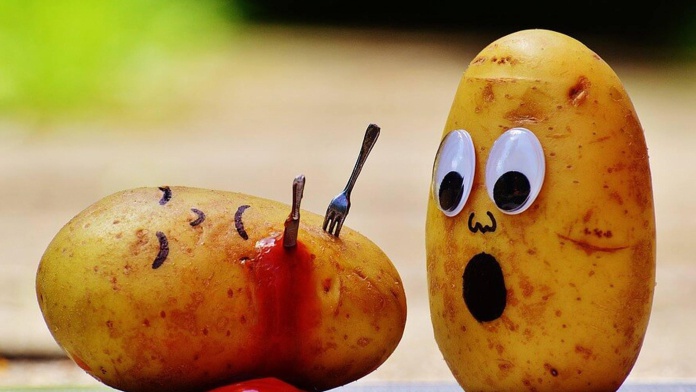
Nutrition science: who’s laughing now?
Read time: Around 10 minutes. Grab a brew.
I first got into nutrition just before the IIFYM movement managed to develop some real sway. This means that I joined this industry when people still HAD to eat six meals per day, when ‘clean eating’ was still a thing and when you absolutely, without question NEEDED to eat a large breakfast, medium sized lunch and small (carb free!) evening meal.
Basically, almost everyone including myself believed everything we all laugh about now.
Just as I was passing my Level 3 my entire philosophy and nutritional worldview was upturned when I came across the website, LeanGains. From here I was introduced to other influencers starting with Lyle McDonald, Layne Norton and the guys at 3DMJ. It’s fair to say that I wasn’t the only one involved with the zeitgeist because at that time it seemed that the industry around me was going through some pretty monumental changes, too. Clean eating was out and macro counting was in. Oats cooked in water were replaced with cinnamon raisin bagels, and the cottage cheese that many of us forced down before bed lost out to, well, ANYTHING.
This all rode on the back of ‘Evidence Based Nutrition’ – the principle that everything you do should be backed by peer reviewed evidence and ideally an extensive amount of generalisable coaching experience. What gymgoers and nutrition experts in popular magazines had always spouted came largely from hearsay, and thankfully researchers and people well versed in the literature rode in to save us from ourselves by presenting some good, solid truth.
In my eyes this is something something that needed to happen – we’d seen enough crappy supplements, indefensible dieting practices and pseudoscientific woo-woo for one lifetime and it was about time that real facts, evidence and critical thinking won out.
But that wasn’t the end. ‘Nutrition’ as a topic or as a coaching practice had not reached it’s final form. We were starting to become a little too reductionist.
Methodological reductionism is the philosophical stance which argues that large or complex entities or phenomena can be best explained with an explanation of their smallest parts. In physics this means that the boiling of water would be best explained by looking at the interaction between energetically excitable molecules, and that this would in turn be best explained by the interactions between sub atomic particles.
In nutrition, this principle has been used to explain nutrition as a simple energy equation, and/or as interactions between macronutrients and the tissues within the body. Nutrition, this theory implies, is about little more than providing the body what it needs in terms of calories, macronutrients, micronutrients, fibre and phytonutrients etc, no more and no less. Give a body the right amount of energy and your weight will do what you want it to, include enough protein and you’ll build/preserve muscle tissue, add enough of each of the vitamins as well as some fibre and you’ll be healthy.
This position has some obvious validity and exploring that validity isn’t really the point of this article; just suffice it to say that I ain’t here to try to deny the energy equation, or dismiss the fact that we need certain macronutrients in certain amounts to do whatever we want to do. Reductionism can be incredibly important for the development of understanding and that’s not really up for debate.
What I would argue, though, is that the reductionist philosophy and the manner in which it intentionally looks to remove all subjective experience from the equation (after all, the entire point of science is to create a situation that affords us the ability to observe things without falling prey to subjective bias or opinion), leaves a great deal of what is important off the table.
Along with the growing understanding that the body processes macronutrients more or less in the same manner regardless of source came wave after wave of ‘Instagram Macro Coaches’ who started using their abs and photographs of ice cream to dupe willing participants into handing over outrageous amounts of money in return for a 2 minute calorie and macronutrient calculation and a recommendation to download MyFitnessPal.
For those who purchased plans from these individuals it was a massive relief to know that yes, you can be healthy/lean/jacked and still eat sweets – Huzzah! Seems positive, right? People were learning the truth of it all.
So why did so many people still not achieve their goals?
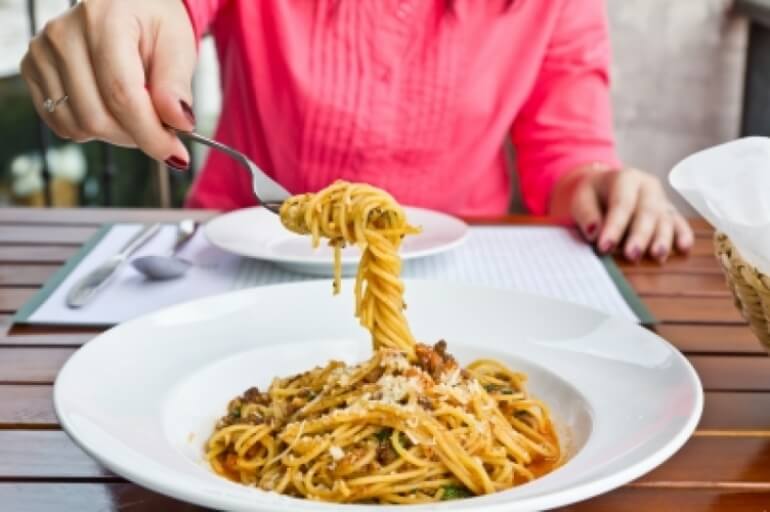
If counting your macronutrients was the answer, and all you needed to do was work out your nutritional requirements and plug them into an app, why are so many people not as lean/healthy as they want to be? Here’s my thinking.
As I mentioned above, the point of science is to remove subjectivity. In a randomised, controlled trial, researchers will create a situation whereby only one variable is altered between conditions, and then the effect of that alteration can be observed. The result of that trial is then added to the growing matrix of ‘what we know’, built upon, challenged and scrutinised and then out of the mesh of knowledge comes some principles. Some of those principles in the realms of nutrition science are:
- Calorie balance dictates bodyweight fluctuations
- Protein intake is important for a lot of bodily functions
- Carbohydrates are more or less carbohydrates, be they from Rice or Rice Krispies, Potatoes or Potato Waffles
As well as a host of other things. It’s all so… simple. The simplicity here should be a big red flag, though, and I think it’s starting to become one. Basically, this reductionist view of nutrition – it’s all about calories, macronutrients, fibre and little else – was incomplete, and both myself and the industry around me have begun to see that. Here’s some things which have started to be spoken about more and more in the last year, and which should really be emphasised in an industry which has been almost conditioned to believe that any nutritional nuance is unimportant BS.
Food choice matters, just like macronutrient quantity.
How many times have we heard that it’s not food choice that matters, only the macronutrient content of that food? This was, of course, a large pendulum swing away from the extreme view that all that matters is eating a certain set of foods and that calories were all but meaningless – but it was a swing too far.
Increasingly it seems that coaches that have always considered themselves evidence based are starting to appreciate the fact that some food choices really are better than others. Recent evidence (1) indicates that 10 portions of fruit and vegetables per day (800g) is the theoretical limit for what will benefit your health, which is a far cry from the idea that ‘all that matters is getting enough fibre and taking a multi’.
Similarly, the fitness industry which once heralded bacon or butter as health foods is having to reassess it’s stance being that the former is considered a class one carcinogen (2) and the latter may have unique impacts on blood lipids compared to other sources of dairy fat, owing to it’s unique food matrix (3).
Finally, the satiating effects of different foods are being spoken about more and more frequently; with most people appreciating that feeling satisfied after a meal can be more influential when dieting than had previously been admitted. Sure, you can have a KFC and still reach your goals – but would it possibly be easier if that hyperpalatable stuff was left out for a few weeks?
This could be considered a small step away from what has been referred to as ‘nutritionism’, which is the assumption that everything about food and it’s impact on our health can be explained by the impact on our health of the various different individual parts of the foods, of which we are aware. It would seem, at least to a small degree, that considering the whole is becoming at least some of the consideration, rather than just the parts.
Food timing still matters
Ask any internet nutrition person (including myself) a few years ago if eating more than 3 meals was at all beneficial, if eating food around your workout or if eating slow-acting protein before bed was beneficial and we’d have laughed at you. Well – who’s laughing now?
Explorations into the impact of nutrient (specifically protein) distribution have started to yield more and more evidence for the idea that protein should ideally be spread out across the day (4) and has a minimum effective dose per meal (5). Not only that, but a bolus dose before bed also seems to improve recovery (6). While it may be true that the ‘anabolic window’ isn’t exactly the most important thing in the world (7), that should never have been taken to say that when you eat your food doesn’t matter at all.
All of this tells you one thing – we all didn’t really understand the basics of nutritional science or biology enough. We heard that all glucose is the same, and ran with it. We heard that you don’t really need a post workout shake and again, we just extrapolated that to mean more than it does. Intermittent fasting is great, but the success you can have with it should never have been taken to mean that protein distribution, or fuelling before a training session, doesn’t matter at all. We knew the soundbites but most hadn’t taken the time to understand what it even meant to say that ‘the body just sees glucose regardless of source’, or what it means to say ‘eating fibre is important for health’.
Strictly speaking this isn’t reductionism, rather an incomplete understanding of what nutritional science really looks like. What created a reductionist view of nutrition was the fact that most of us only took our incomplete information from the nutritional sciences, as if nutrition was a monolith that stood apart from everything else. Here is where I’m starting to hear whispers and rumblings of change – more and more nutritionists, coaches and trainers are talking about the knowledge that is relevant to us and our clients; which can be found in areas of research somewhat removed from what we would associate closely with helping people to lose weight.
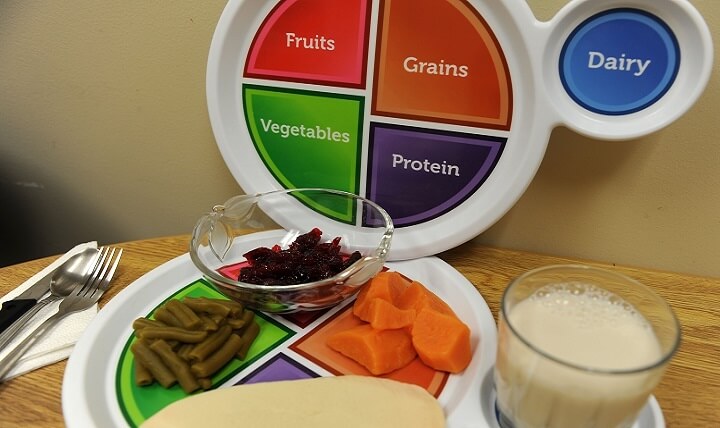
It turns out that it’s not enough to know how much food someone should eat, and it’s not enough to know what you need to put into your MyFitnessPal. It turns out that removing the subjectivity – the human variable – of diet, actually removed a massive part of the equation that must be put back in order for people to alter what it is they are doing in the real world.
We had all paid lip service to adherence by espousing the idea that a diet that is restrictive in terms of food choice was unsustainable, but we neglected to pay any attention at all to the massively influential personal and individual aspect of eating behaviour. In fact, in the next 18 months or so, I predict that you’re going to hear a lot more about:
Hedonism, what causes it and why it is a problem for some
By Hedonism I mean the drive to eat more and more, which will be a far greater influence on dieting success for some than it will be for others. Research has shown that the hedonistic drive to eat (which is made up of numerous factors, including dopaminergically mediated cravings) is stronger for those who are obese than those who are not (8), and the same goes for the reward sensation upon eating – this means that obese people want food more, and need more food to satiate their desires, and this is rooted in brain physiology.
On top of this, consider that the enjoyment of foods with a higher fat content is higher for obese people than lean, and that the enjoyment of high fat and sugar foods is higher for ex-obese people than the currently obese (9).
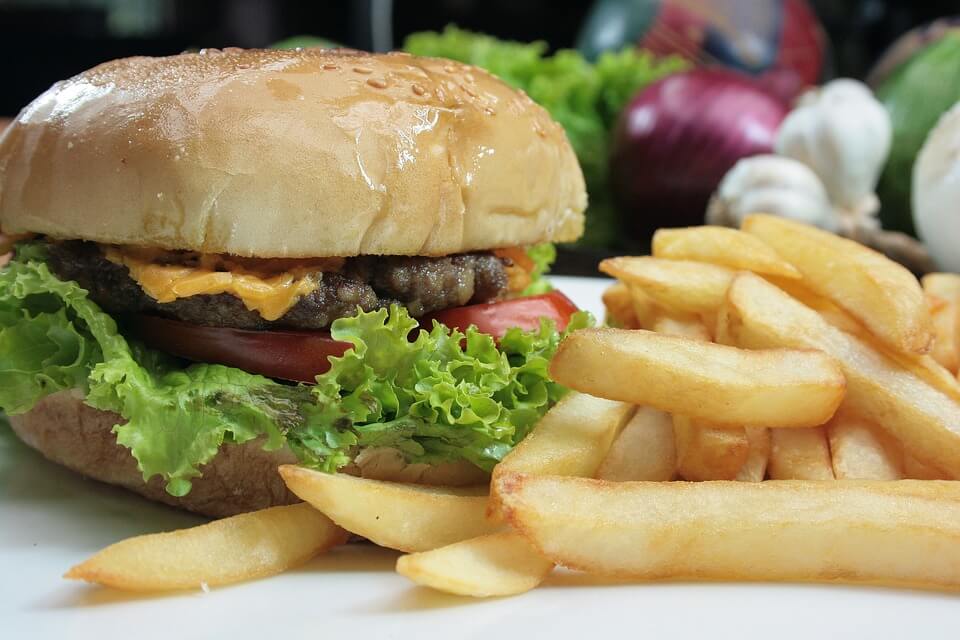
Finally consider that those who are obese will notice food more in their immediate area, and that this is associated with an onset of cravings (10). All of this means that while it may be technically correct that eating a smaller portion of certain snack foods, or doing so in a more regimented, measured way is an effective means of losing weight for those who are able to do so, there is a strong argument that, for those looking to lose weight, it might be a more effective approach to simply avoid ‘junk foods’ altogether, at least until some form of healthy eating approach becomes the norm.
Habits and mindfulness
I’ve written about habits before, so I won’t go over that again but what I will say is this: There is an increasing number of people for whom daily mindfulness practice is an important ritual, and this has some utility for the health and fitness space, too.
In one study, self affirmations (meditation upon one’s values) activated an area of the brain called the ventromedial prefrontal cortex, an area responsible for ‘running the automatic program’ of habits, but also for making value judgements. In the study (11), one group did this practice whereas another did not, and then both groups were given health related messages. On follow up, the mindfulness group had significantly better luck with altering their behaviour than did the control group.
This tells you that the simple recommendation of health-related behaviour change might not be enough, and that an appeal to a client’s values – possibly with the inclusion of meditation or other mindfulness practice aimed at reflecting on these – can alter the ultimate outcome of the same information.
Sleep makes more of a difference than we all want to admit
Sleep deprivation is something that we have all joked about at one point or other, with ‘sleep is for the weak’ being part and parcel of normal conversation for some. The sheer amount of coffee that the average #FitPro seems to drink is another indicator that sleep hasn’t really been given the attention it deserves in recent years.
This is a shame, because sleep can impact your nutrition in a really direct way. Sleep deprivation increases Grehlin secretion and decreases serum Leptin – which results in a greater appetite (12). Importantly, one night of poor sleep is all it takes for this to affect you (13).

What this means is that if you aren’t at least asking a client how they are sleeping, you may be leaving a huge amount of what is important, and what you can help them improve, out of the conversation. If your client is struggling with excessive hunger they may need to alter food choice and they may be undereating, but they ALSO might be sleeping badly.
Behavioural psychology says that sometimes, the bros were right
Self-efficacy is a large predictor of weight loss outcomes (14), which simply means that the belief someone has about their ability to do the things required to improve their health or body composition, is a pretty good gauge of whether or not they will try to do it.
One thing that really improves feelings of self-efficacy are small wins. Success at a seemingly pointless thing can increase your desire to do something more meaningful. Another thing that increases self-efficacy is preparation – the more prepared you are, the more likely you are to do something.
Historically, bodybuilders have spent time at the weekend preparing their food for the week. Posts of Tupperware boxes brimming with healthy foods dominate some areas of Instagram fitness, and this has typically been scoffed at by the ‘evidence based’ nutrition figure. Why would these people prep food and carry it around with them to eat cold? They could just eat tasty things on the fly and track it!!
Well, first of all, preparing food is practical and less expensive, but there is a good chance that it creates a feeling of readiness in the individual. They may look at their kitchen bench covered with the forest of meals they have just made and understand that yes, they can do this and yes, they are able to eat well so long as they are prepared. Over time the requirement for preparation will go away, but the effects on that person’s confidence may not. Although food prep isn’t a necessity, it’s damn helpful, and the increased confidence just might seep out in to other areas of behaviour change, too.
Ultimately, the point is this.
Nutrition is a science, but applied nutrition is far more than that. Applied nutrition requires at least some understanding (either from reviewing literature from other disciplines, or from personal experience), of the many other drivers that lie behind successes and failures relating to nutritional interventions There is SO much more to nutrition than knowing how many calories to eat and knowing that it doesn’t matter if your rice is white or brown.
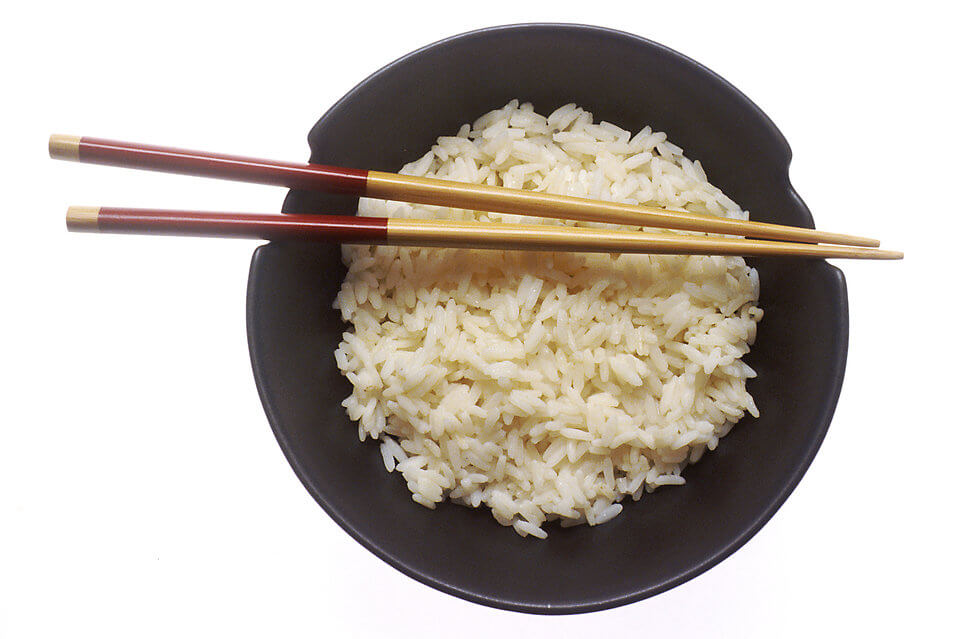
In fact, nutrition is a growing and rapidly accelerating topic, and you can be sure that we here at the BTN Academy will always remain at the forefront. We’ve made assumptions in our past teachings and coaching with nutrition, but having invested vast amouts of time buried in the literature, as well as analysing the behavioural patterns of our clients in attempting their journey of change (both with our 1-2-1 coaching and our group coaching program Fat Loss for Life), we have learned much about nutrition and ones ability to change, for good.
Because of the human nuances and interesting wrinkles that complicate what should at first seem so simple with weight management and health, we have evolved what we teach. All of the above we’ve just discussed is now a forefront part of our new AfN Approved Nutrition Coaching Course – Foundation Programme course.
This brand new, built-from-scratch 10 week course is accompanied by a ~400 page, comprehensively referenced manual which will teach you the basics like you’ve never been taught them before. It’s not just about calories after all!
You’ll learn about food from the molecular level up, you’ll learn the biology involved with transporting food from your fork to a cell, you’ll learn how food impacts not only your bodyfat but your health, you’ll learn about behavioural science and habit change, and you’ll even learn some basic neuroscience and psychology as they pertain to sleep, habit change and more. In short, we will walk you through nutrition using the broadest range of disciplines possible in 10 weeks, so you understand ALL the science, and importantly, its application to us and the clients we coach.
And it’s starting soon and myself and Ben, your teachers, hope to see you there!
Tom Bainbridge
BTN Academy Mentor
- Aune, D., Giovannucci, E., Boffetta, P., Fadnes, L., Keum, N., Norat, T., Greenwood, D., Riboli, E., Vatten, L. and Tonstad, S. (2017). Fruit and vegetable intake and the risk of cardiovascular disease, total cancer and all-cause mortality-a systematic review and dose-response meta-analysis of prospective studies. International Journal of Epidemiology.
- International Agency for Research on Cancer (2015). IARC Monographs evaluate consumption of red meat and processed meat. [online] Available at: https://www.iarc.fr/en/media-centre/pr/2015/pdfs/pr240_E.pdf [Accessed 18 Jul. 2017].
- Rosqvist, F., Smedman, A., Lindmark-Mansson, H., Paulsson, M., Petrus, P., Straniero, S., Rudling, M., Dahlman, I. and Riserus, U. (2015). Potential role of milk fat globule membrane in modulating plasma lipoproteins, gene expression, and cholesterol metabolism in humans: a randomized study. American Journal of Clinical Nutrition, 102(1), pp.20-30.
- Areta, J., Burke, L., Ross, M., Camera, D., West, D., Broad, E., Jeacocke, N., Moore, D., Stellingwerff, T., Phillips, S., Hawley, J. and Coffey, V. (2013). Timing and distribution of protein ingestion during prolonged recovery from resistance exercise alters myofibrillar protein synthesis. The Journal of Physiology, 591(9), pp.2319-2331.
- Layman, D., Anthony, T., Rasmussen, B., Adams, S., Lynch, C., Brinkworth, G. and Davis, T. (2015). Defining meal requirements for protein to optimize metabolic roles of amino acids. American Journal of Clinical Nutrition, 101(6), pp.1330S-1338S.
- RES, P., GROEN, B., PENNINGS, B., BEELEN, M., WALLIS, G., GIJSEN, A., SENDEN, J. and VAN LOON, L. (2012). Protein Ingestion before Sleep Improves Postexercise Overnight Recovery. Medicine & Science in Sports & Exercise, 44(8), pp.1560-1569.
- Schoenfeld, B., Aragon, A. and Krieger, J. (2013). The effect of protein timing on muscle strength and hypertrophy: a meta-analysis. Journal of the International Society of Sports Nutrition, 10(1), p.53.
- Stice, E., Spoor, S., Ng, J. and Zald, D. (2009). Relation of obesity to consummatory and anticipatory food reward. Physiology & Behavior, 97(5), pp.551-560.
- DREWNOWSKI, A., BRUNZELL, J., SANDE, K., IVERIUS, P. and GREENWOOD, M. (1985). Sweet tooth reconsidered: Taste responsiveness in human obesity. Physiology & Behavior, 35(4), pp.617-622.
- Werthmann, J., Roefs, A., Nederkoorn, C., Mogg, K., Bradley, B. and Jansen, A. (2011). Can(not) take my eyes off it: Attention bias for food in overweight participants. Health Psychology, 30(5), pp.561-569.
- Falk, E., O’Donnell, M., Cascio, C., Tinney, F., Kang, Y., Lieberman, M., Taylor, S., An, L., Resnicow, K. and Strecher, V. (2015). Self-affirmation alters the brain’s response to health messages and subsequent behavior change. Proceedings of the National Academy of Sciences, 112(7), pp.1977-1982.
- Taheri, S., Lin, L., Austin, D., Young, T. and Mignot, E. (2004). Short Sleep Duration Is Associated with Reduced Leptin, Elevated Ghrelin, and Increased Body Mass Index. PLoS Medicine, 1(3), p.e62.
- SCHMID, S., HALLSCHMID, M., JAUCH-CHARA, K., BORN, J. and SCHULTES, B. (2008). A single night of sleep deprivation increases ghrelin levels and feelings of hunger in normal-weight healthy men. Journal of Sleep Research, 17(3), pp.331-334.
- Bernier, M. and Avard, J. (1986). Self-efficacy, outcome, and attrition in a weight-reduction program. Cognitive Therapy and Research, 10(3), pp.319-338.